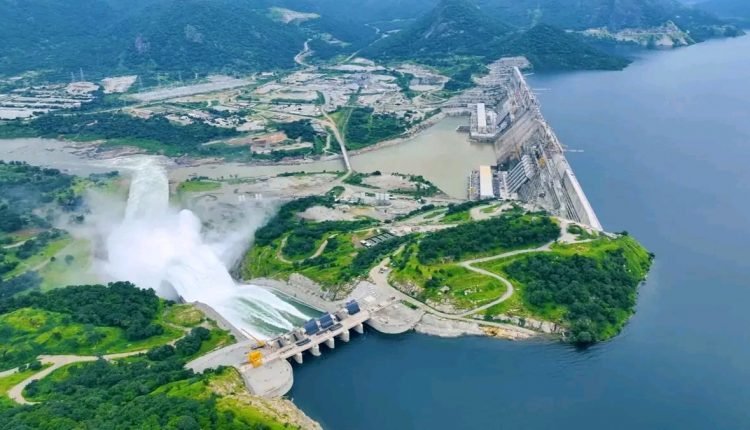GERD heralds a new era of sustainable dev’t in East Africa, says foreign policy expert
Addis Ababa, July 16, 2025 (FMC) — The Grand Ethiopian Renaissance Dam (GERD) stands as a beacon of hope for sustainable development across East Africa, according to a prominent expert in foreign policy.
Ethiopia is preparing to officially inaugurate the GERD in September 2025, a momentous occasion that marks the near-completion of Africa’s largest hydropower project and a defining milestone in the country’s development journey.
Professor Brook Hailu, a political scientist and international relations scholar at Addis Ababa University, emphasized that the GERD’s impact transcends national boundaries.
Widely recognized as a symbol of Ethiopian innovation, self-reliance, and regional cooperation, the GERD, he noted, is poised to reshape the socio-economic landscape of East Africa.
Prime Minister Abiy Ahmed recently reaffirmed before the House of People’s Representatives that the formal inauguration of the GERD will take place within the next few months, highlighting the project’s significance to Ethiopia and the wider region.
Professor Brook described the GERD as “a brilliant demonstration of national ingenuity and collective resolve,” highlighting the years of vision, meticulous planning, and sustained commitment that brought the project to life.
“This is a project that was conceived with foresight and executed with unwavering dedication,” he told l9cal news agency ENA. “Its inauguration will stand as an extraordinary achievement for all Ethiopians.”
While the GERD will dramatically transform Ethiopia’s energy sector by providing clean and renewable electricity to millions, its value, he stressed, extends far beyond energy production.
“It is a powerful symbol of Ethiopia’s sovereignty and its legitimate right to utilize its natural resources for national development,” he said.
“The GERD is not merely a hydroelectric facility. It embodies our enduring commitment to sustainable progress and responsible resource management,” Professor Brook underscored.
He pointed out that, despite notable strides in electrification, many rural communities across Ethiopia still face challenges in accessing reliable energy. In this context, the GERD is expected to play a transformative role—expanding access to electricity, stimulating industrial growth, and fostering broad-based socio-economic advancement.
“We see this project not only as an economic engine but also as a tool to improve the quality of life for millions of Ethiopians,” he added.
Addressing concerns raised by downstream countries, particularly Egypt, Professor Brook dismissed them as “unfounded apprehensions.” He reaffirmed that Ethiopia’s approach to Nile water utilization is guided by principles of transparency, equity, and peaceful cooperation.
“From the outset, Ethiopia has invited its neighbors to engage with this historic project,” he stated. “The GERD’s mission is to promote shared prosperity and regional integration—not to diminish anyone’s share or security.”

